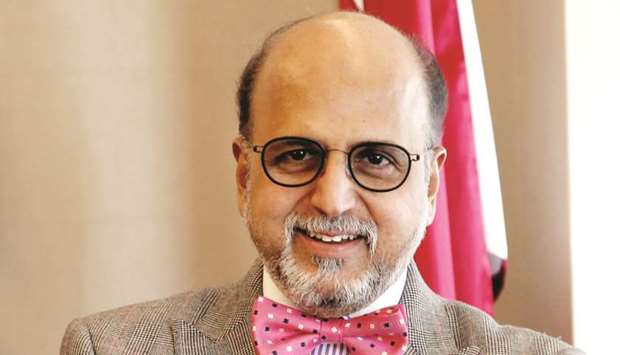The SIBOS 2018 conference will be held at Sydney, Australia this week and Doha Bank will participate in the same. This year the SIBOS conference is held under the theme ‘Enabling the digital economy’ which will be represented by four sub-themes namely how data, artificial intelligence (AI) and robotics are driving service innovation and business model renewal, new paradigms and technologies for information sharing to tackle financial crime, tackling the widening cybersecurity challenge in the digital economy and adapting to evolving geopolitical and regulatory priorities.
Some of my areas of interest which will be discussed at this conference include open banking, developments impacting payments industry, technology impact on correspondent banking and trade finance, current trends in artificial intelligence and cyber security risks.
In relation to open banking, the discussions are expected to be held on the role of banks in open banking. In the long term, banks will need to find a new place in a global market where products, services and finance are increasingly integrated.
The potential challenges, opportunities and strategies in the Application Program Interface (API) economy. The cloud and API embracing the disruption in financial services and the community developed open banking APIs.
On the payment segment, discussions are expected to happen on global payments outlook, the new horizons in payments and transaction banking, diving deeper in the future of cross-border payments and the disruptions impacting payments.
Significant disruptions persist just below the surface, likely to alter the dynamics between financial institutions and non-bank fintechs. Strategic options in the key areas of global transaction banking, cross-border payments, and digital ecosystems are also expected to be discussed. In relation to correspondent banking, discussions are expected to happen on SWIFT GPI. It brings the speed, transparency and end-to-end traceability in cross-border payments. It also gives opportunity to make cross border payments real-time.
The strategic business drivers for adopting GPI and the key people who should support the same in the organisation will be deliberated.
The other areas which are expected to be discussed include frictionless payments and the future of correspondent banking. As digitisation moves rapidly globally, transaction participants such as merchants, consumers look to the banks for enabling near real-time or real time payments.
The main constraint for banks to move funds in real-time is technology or block chain etc, the primary reason is compliance. Therefore embedding compliance in payments is important to support real-time payments. On artificial intelligence (AI), the areas which are expected to be discussed include, the rise of artificial intelligence in financial services, how AI is transforming payments & financial crime compliance, digital transformation with AI and robotics, using AI to shift large organisation’s culture towards data literacy, using AI to drive organisational transformation and transforming AML with AI. Machines can also play a critical role in dealing with the data challenges linked to higher levels of information, and data processing associated with the increasing flow of international transactions.
In relation to cyber risk expected to be on the evolution of FS cyber-attacks, how business can mitigate this risk and how can we put a price of cyber security.
In 2017, the global merchandise trade exceeded $17tn and commercial services trade exceeded $5tn respectively. IMF has recently cautioned at its annual meeting that the window of opportunity to keep global growth on track is “narrowing” amid trade disputes and emerging markets crises.
Risks are increasingly skewed to the downside amid heightened trade tensions and ongoing geopolitical concerns, with tighter financial conditions particularly affecting many emerging market and developing countries.
Amidst the trade challenges, the technology developments impacting trade finance will be explored in the event. In relation to trade finance discussions are expected on the trade finance drive towards digitisation and re-imagining trade finance with block chain. On the whole, we can expect the SIBOS 2018 to bank on digital economy.
Dr R Seetharaman is Group CEO of Doha Bank.

Dr R Seetharaman
